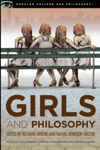 Assistant Professor Elizabeth Cohen at Scientific American says:
Assistant Professor Elizabeth Cohen at Scientific American says:
According to [Zillman’s] affective disposition theory, people enjoy entertainment when characters that they identify as the “good guys” win, and the “bad guys” get the justice they deserve.
And yet for a long time, we the audience have apparently enjoyed watching characters on TV do bad/immoral things and even root for them in some sense. It cannot be said that we watched The Sopranos just waiting for Tony’s comeuppance. Seinfeld, Breaking Bad, Dexter (and I have argued Girls) are shows where our watching has little to do with justice for the anti-heroes at the heart of their stories.
Cohen explains that Zillman’s original hypothesis in its details is more or less out of favor, even with his own school of thought:
Zillmann’s intellectual progeny question the premise that feeling good is the only reason we watch entertaining television. We often associate words like ‘fun,’ ‘enjoyment,’ or ‘escape’ when we think about our entertainment. These are all hedonic, or pleasurable, rewards of watching TV. But the work of Mary Beth Oliver, a professor of media studies at Pennsylvania State University, has shown us that entertainment can offer more than enjoyment. In step with the positive psychology movement, Oliver and her colleagues have identified many eudaimonic rewards of watching depressing, stressful, or even horrific television. Eudaimonia is an experience that meaningfulness, insight, and emotions that put us in touch with our own humanity. Eudaimonia might not make us happy [i.e., overflowing with pleasure-DF], but it can enrich us, leave us feeling fulfilled, touched, and perhaps even teach us something about ourselves.
Oliver is working with a very useful distinction that goes under the description of “hedonic happiness versus eudaimonic happiness”. There are two kinds of “happiness” that can be easily confused. Hedonic just means happiness, for lack of a better word, having to do with strict pleasure. Eudaimonia has to do with happiness, for lack of a better word, having to do with meaningfulness and purpose in life.
My title of this blog post suggests I am interested in the effects on a person’s mental states (his or her psychology) when he or she watches anti-heroes on TV. According to Zillman, the effect would be a kind of hedonic pleasure we get from seeing justice dispensed upon their deserving heads. But that doesn’t seem to capture what’s going on in lots of recent TV shows in which, yes, the season finale of the show’s final season might resolve into questions about justice, but in which the rest of the earlier episodes are not about dispensing justice and therefore do not trigger any supposed hedonic pleasure that would go with seeing it meted out.
For these other shows, it seems to make more sense to say, as Oliver does, that watching dramatic stories (whether justice prevails or not) provides eudaimonic happiness (let’s be careful not to confuse things by calling it “pleasure”) insofar as stories are realistic or at least relevant to our lives in the sense that they give us the opportunity to think (and more likely feel) our way through issues that once thought or felt through provide meaningfulness and understanding and purpose in life.





